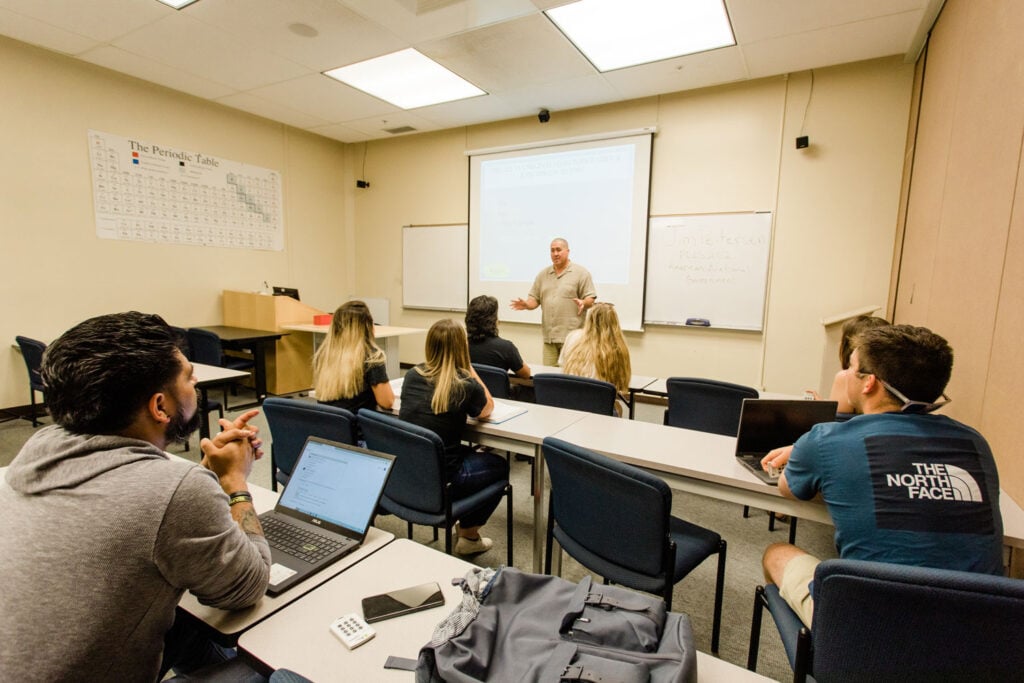Successful community colleges play a vital role working with local business, civic and educational leaders to identify and meet the needs of the region the college serves.
What does the future look like for the Walla Walla Valley?
We already have a pretty clear picture. It includes an increasingly diverse population and economy, with business, manufacturing, tourism, education, and health care creating new opportunities and jobs. That means heightened demand for more teachers, nurses, managers and tech workers. To fully benefit from these opportunities, we will need to ensure that our community members have the right education and experience to succeed.
For Walla Walla Community College that means we are continually assessing current programs and growing new ones. Currently the college offers 50 degrees, two applied baccalaureates and about 60 certificate programs. With an eye on the next five years. the college has identified several areas where there appears to be enough potential to warrant the creation of innovative programs not only on the Walla Walla campus, but also in Clarkston.
For example, we are seeking approval from the State Board of Technical Colleges to add a bachelor of applied science in teacher education and an associate of applied science for people seeking careers as paraeducators. We are also finalizing the documentation for a certificate in audio engineering, which will start, next fall.
The new programs I mentioned above started with conversations with the local business community and other stakeholders. The college tracks economic data, technology trends and funding streams. WWCC faculty members are at the heart of this development process, driving the curriculum and consulting regularly with their local advisory committees to identify specific needs and trends.
For example, the new BAS in teacher education originated in discussions with Dr. Wade Smith, superintendent of Walla Walla Public Schools. The district has an urgent need for bilingual teachers and WWCC designed a BAS program that creates a pathway for current teacher aides who are bilingual to earn their teaching degree. This degree is a win for the district and for WWCC students, who are 34% Hispanic. We know our students prefer to find employment in this area and creating this degree along with other higher education opportunities increases their chances of securing satisfying jobs in the place where they want to live and raise their family.
Other new and emerging programs that reflect the unique identity and interests of the communities WWCC serves include a new 45-credit certificate in audio engineering, which will prepare students for jobs in the recording industry, hospitality, auto industry, building trades and many other venues.
WWCC also continues to evolve our Farm to Fork interdisciplinary initiative in which the faculty of the agscience and culinary programs are teaching students to grow, harvest and process the crops and livestock that will be consumed in the campus bistro. We are in the preliminary stages of this project, but when the vision is fully realized, WWCC will have a working farm providing additional hands-on opportunities for students.
Looking even farther out into the future, WWCC has started the process of revising our networking AAS program to include cybersecurity, with the goal of earning the designation by the Center of Academic Excellence in cyber defense. We are doing this because economic data shows that businesses and organizations of all sizes have a need for employees with cybersecurity training and backgrounds.
I’ve been a college or university administrator for more than 20 years and, in my experience, creating new programs is one of the most important and exciting tasks to take on. The most successful efforts require patience, investment and significant collaboration with faculty and community stakeholders. It isn’t about chasing the latest fad but rather taking the time to really understand the specific needs of the communities a college serves.
Here in the Walla Walla Valley, we know that our opportunities center in business and manufacturing, hospitality and tourism, education, and health care. Our mission at WWCC is to make sure our students and community partners can and will maximize those opportunities.
Dante Leon is vice president of instruction at Walla Walla Community College.
The article “New programs coming to WWCC offer insight into the region’s future” was published in the Union Bulletin. You can find the article at the following link: New programs coming to WWCC offer insight into the region’s future

